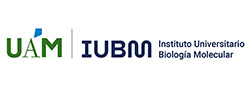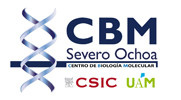Molecular Ecology of Extreme Environments
Program
Investigators
Prof. Ricardo Amils Pibernat. Profesor Emérito. Departamento de Biología Molecular. UAM.
Prof. David Ruano Gallego. Investigador Ramón y Cajal. Departamento de Biología Molecular. UAM.
More information
This area of research has the following objectives:
- Geomicrobiology of the Iberian Pyrite Belt (IPB): characterization of the underground bioreactor responsible of the origin of the extreme conditions detected in the Río Tinto basin. This objective is developed in collaboration with Professor J.L. Sanz from the Department of Molecular Biology (UAM). The development of this objective aims to identify the microorganisms involved in the coupled operation of the C, H, N, S and Fe biogeochemical cycles in the deep subsurface of the IPB in the absence of light, their isolation, phenotypic and genotypic characterization, and their involvement in the oxidation of metal sulfides, mainly pyrite, in strict anaerobic conditions.
- Acidophiles: conventional microbial ecology, molecular ecology, molecular biology and biotechnology of extreme acidic environments. This objective is mainly devoted to the exploration of the biotechnological applications (biomining, bioremediation, biomineralization and phytoremediation) of acidophilic organisms inhabiting the Tinto basin.
- Characterization of extreme environments of astrobiological interest: Río Tinto and Iberian Pyrite Belt, Uyuni Salt Lake (Bolivia), Dallol in the Danakil depression (Ethiopia). This objective aims to characterize different extreme environments to evaluate the limits of life and the habitability in different planets and moons of the Solar System and from exoplanets.


